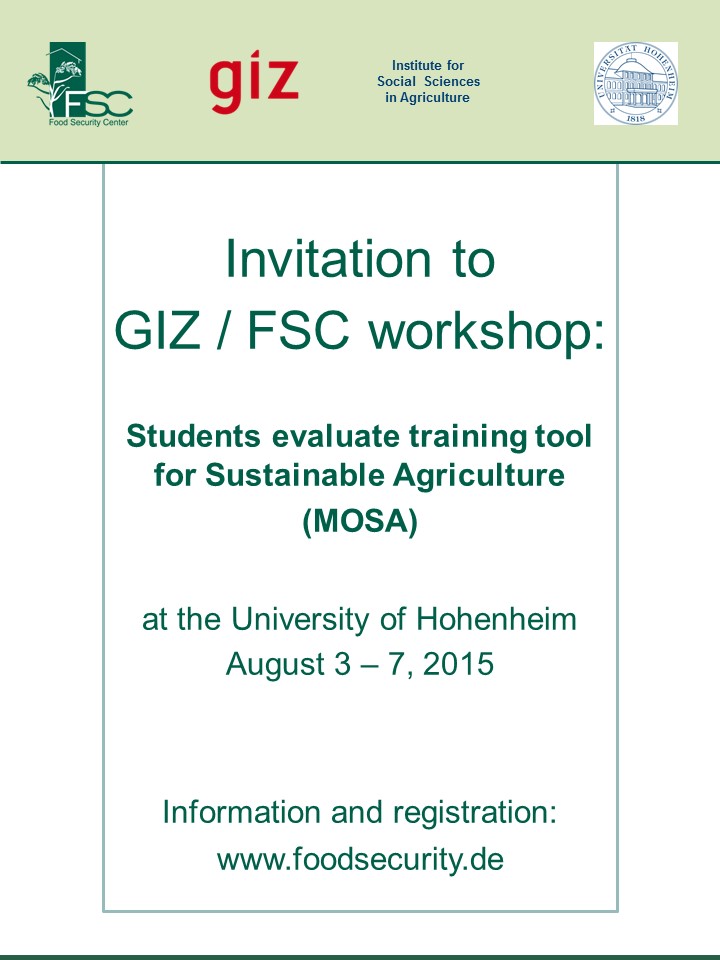GIZ/FSC: Train the Trainer Workshop
Students evaluate training tool for Sustainable Agriculture (MOSA)
With the Modules on Sustainable Agriculture (MOSA) GIZ developed a tool for extension workers, worldwide. It links a holistic approach of sustainability with the issues of nutrition, food security, practical farming, resources management and biodiversity losses. On August 3-7, 2015 FSC and GIZ invited students at the University of Hohenheim to get trained in MOSA.

Farmers nowadays face various challenges like changing climatic conditions, economic hazards, over exploitation of resources or degradation of soils. At the same time they have to make decisions about modernisation and innovations to increase the agricultural output.
A number of studies have revealed that development experts and advisors lack a general awareness of sustainable agricultural practices. To address this gap, these training modules on sustainable agriculture (MOSA) were developed: adopting a critical systems perspective, the different modules reflect the consumption of natural resources and their use in a sustainable way and to achieve resilient structures.
For the participants the training could be the first step to become a trainer for sustainable agriculture in a GIZ training scheme. The course enables participants to promote agricultural practices that increase productivity without compromising the quality of products and the availability of natural resources. It reflects the theoretical back ground and provides technical and managerial solutions in view of sustainability, climatic challenges and resilience of livelihood systems.
During the training contents like soil fertility, biodiversity, water and water use, plant protection, livestock, sustainable value chains, labour condition, good quality of life, economic viability and measuring sustainability are on the agenda.
The training course comprised up to 16 modules. They are designed for self-organized learning groups. During the five day workshop students slipped into the role of extension workers and presented the modules to each other. The training approach and the materials were reflected and students gave inputs to evaluate and improve MOSA.
Benefit for participants:
- A broad theoretical background on sustainable agriculture. Information and material on technical and managerial solutions were provided with special regard to sustainability, climatic challenges and resilience of livelihood systems.
- The participants got in touch with GIZ. The training could be the first step to become a trainer for sustainable agriculture in a GIZ training scheme.
- 2 credits points for Portfolio-Modul
Involved organizations:
- GIZ
- FSC
- University of Hohenheim, Department of Rural Sociology at the Institute for Social Sciences
- Bern University of Applied Sciences - School of Agricultural, Forest and Food Sciences, Switzerland (tbc).
